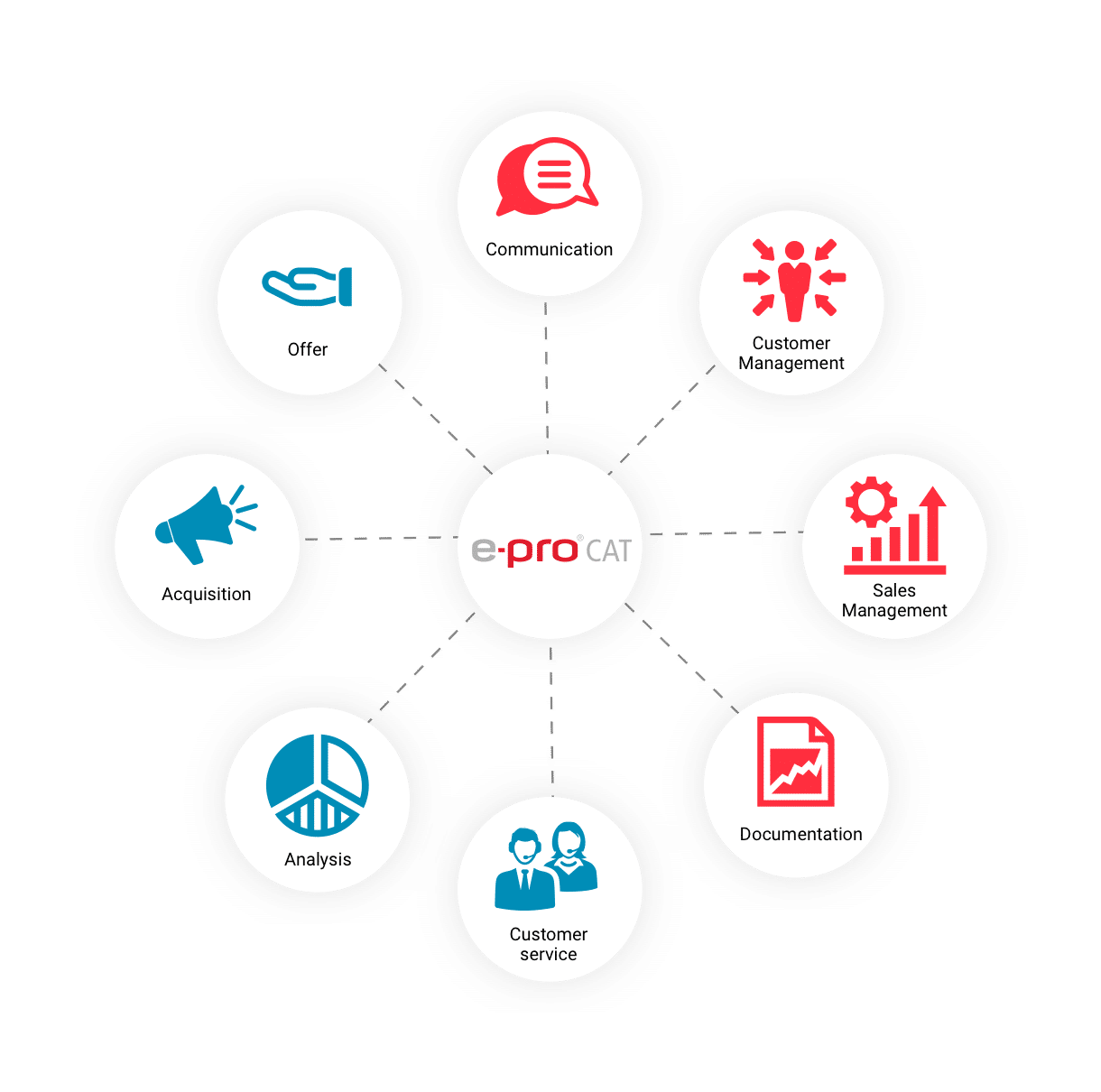B2B electronic catalog standards
Product data is the central building block in e-Commerce. The digital exchange of this information forms the base of almost all business processes from purchasing to production to sales.
What are electronic catalogs / B2B catalogs? And who uses them?
An electronic catalog / B2B catalog is a collection of information in the form of a data pool that describes products or services. More specifically, catalog data includes product descriptions, delivery information, prices, technical features, multimedia data and much more. These electronic catalogs or B2B catalogs are usually exchanged between manufacturers, suppliers, distributors, and procurement departments.
In industrial companies, electronic catalogs are often initiated by the sales, marketing, or product management departments.
Larger enterprises have been driving change and putting pressure on small and medium-sized organizations to handle business processes digitally. In today’s commerce environment, it is no longer adequate to label articles using barcodes: Customers expect data to be uniquely defined, and classified with high quality data. If a company does not have the ability to deliver their product information in a uniform and standardized format, they risk losing sales or even clients that will source their products from those who offer better information and can deliver it in the form of electronic catalogs.
B2B catalog processes & standards: Introducing BMEcat, GS1 XML & IDEA XML
Over the years, companies have accumulated volumes of product data across their entire organization, in a wide variety of formats. Some of this product data is published in print catalogs, additional information is stored in Excel spreadsheets, and more still can be found in proprietary databases and formats used by software tools and programs. An e-catalog software like e-proCAT aggregates and consolidates all of the above mentioned product information in a single, standardized digital format. Updating your product data (assortments, prices, etc.) will be easier, and you will deliver better quality information. In addition, incorrect orders are avoided, and costly returns reduced.

Electronic information exchange is the base of many business processes including ordering, delivery or billing. Offer and order options are now driven globally due to digitalization. Digital product catalogs are a must for electronic procurement systems, e-commerce or online stores.
As a result, a standard B2B exchange format enables any catalog to be imported onto various platforms like ERP, WMS, e-Commerce plattforms, websites, or online shops. By using e-business standards, it is possible to distribute multilingual product catalogs to international customers. Resulting in better customer service, a more through out documentation of your inventory and information around your products. It is also easier to run detailed analysis on your sales and procurement activities.
The most widely used format for electronic catalogs in Europe is BMEcat. This XML-based catalog exchange format was developed in 1999 by the Bundesverband Materialwirtschaft, Einkauf und Logistik e. V. (BME), the Fraunhofer Institute for Industrial Engineering (IAO) in Stuttgart, the universities of Duisburg-Essen and Linz, as well as numerous large companies and technology partners including the e-pro solutions GmbH. In addition to BMEcat, XML formats such as GS1 XML (GDSN) or IDEA XML are used by organizations in different industries, and departments including prepress (packaging, flavoring and raw materials, etc.), cash logistics and the healthcare sector.

 Deutsch
Deutsch Deutsch (CH)
Deutsch (CH)